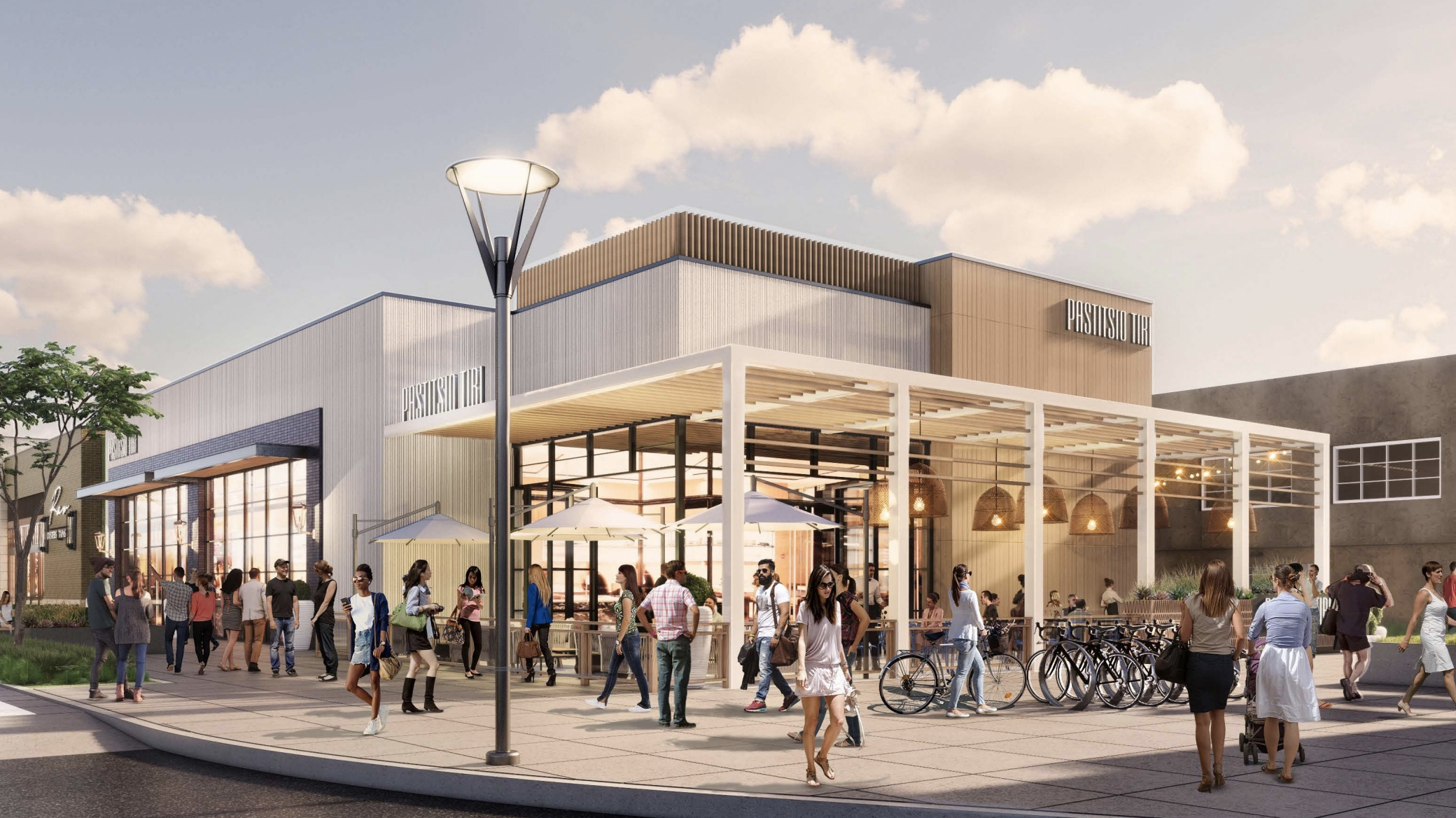The owner of Stanford Shopping Center is threatening to sue Palo Alto after the city had indicated that it will not allow a new building that is set to house a restaurant from world-renowned chef Jose Andres to use natural gas.
The City Council on May 8 discussed in a closed session a letter that the city received on April 28 from an attorney representing Simon Property Group (SPG Center LLC), which is looking to construct three new buildings at the former location of Macy's Men's store. The shopping center filed its initial application in November 2019, long before the city revised its building code to ban natural gas connections in all new buildings.
According to a letter from Anna Shimko, an attorney representing Simon Property Group (SPG Center LLC), the city has indicated that because SPG Center LLC, has not yet secured a building permit for the restaurant building — known as Building EE — the building cannot connect to the gas line that has already been installed to serve the structure.
"The City would thus deprive SPG of use of the gas line built specifically to serve Building EE and its planned restaurant facilities," Shimko wrote.
"SPG is confident that the enforcement of the new Reach Code in this context is legally defective and unconstitutional, and SPG is thus prepared to take all actions necessary to enforce its legal rights to employ gas facilities with Building EE."
Specifically, the letter argues that the city's prior approvals of the project have given Stanford Shopping Center vested rights to use gas and any refusal to do so would be an "unconstitutional taking that requires just compensation." SPG applied to construct the one-story restaurant building and two others — a three-story Restoration Hardware and a two-story Wilkes Bashford — at the site of the former Macy's Men's store in 2019, and over the following two years it had secured approval for its plans from the city's Architectural Review Board and from the city's Planning and Development Services Department.
The greenlighted plans had specified that the plans would include a gas line, which SPG installed in January 2021. Two months later, Andrés' restaurant Zaytinya expressed an interest in opening a new location at Stanford Shopping Center, according to the letter. Seeking more space for the restaurant, SPG submitted revised plans for the restaurant building, which the Architectural Review Board approved in May 2022. By the end of the year, the shopping center had entered into leases with Zaytinya and with the restaurant Dumpling Time, which would also occupy Building EE.
"More than once, before the Reach Code was enacted, SPG secured approval to install the gas line specifically and directly leading to Building EE," the letter states. "SPG relied in good faith on those approvals by entering into contractual lease obligations and spending significant sums to construct gas connections for Building EE. As a result, SPG has obtained a vested right to provide gas connections within Building EE."
While city officials have long touted the benefits of induction stoves, the letter suggests that Zaytinya will not come to Palo Alto if the restaurant does not have gas connection. The restaurant, according to the letter, relies on "traditional cooking methods that require gas appliances to achieve its signature, complex flavors."
"Some of its more conventional cooking equipment can be made electric, but other unique pieces of gas-fired equipment critical for Zaytinya's success do not have electrically powered equivalents. Without a gas connection and appliances, Zaytinya would be forced to alter its signature five-star reputation and if SPG cannot provide gas in Building EE, Zaytinya will likely choose not to locate within the city."
"This would be an unfortunate loss for the residents of Palo Alto, as well as a compensable loss for which SPG would be forced to seek redress," Shimko wrote.
The council did not take any reportable actions during its May 8 closed session. City officials confirmed to this news organization that Shimko's characterization of the city's position on potential gas use in Building EE is accurate.
Simon Property Group is far from the only property owner concerned about the implications of recently adopted building codes that seek to reduce greenhouse gas emissions by barring installations of new gas lines. Berkeley, which in 2019 became the first city to ban installation of gas lines in new buildings, suffered a blow last month in its effort to restrict natural gas when an appeals court struck down the law. The ruling, which was made in response to a legal challenge from the California Restaurant Association, concluded that the ban violates the federal Energy Policy and Conservation Act, a 1975 law that regulates energy use.
The ruling from the 9th Circuit Court of Appeals could have a significant impact on the more than two dozen cities that have adopted similar "reach codes" to restrict natural gas. The Palo Alto City Council approved last October a host of revisions to the city's building code, including an "all-electric" requirement for all newly constructed buildings. This was a significant expansion of the city's prior building code, which only applied the all-electric requirement to low-rise residential buildings.



Comments